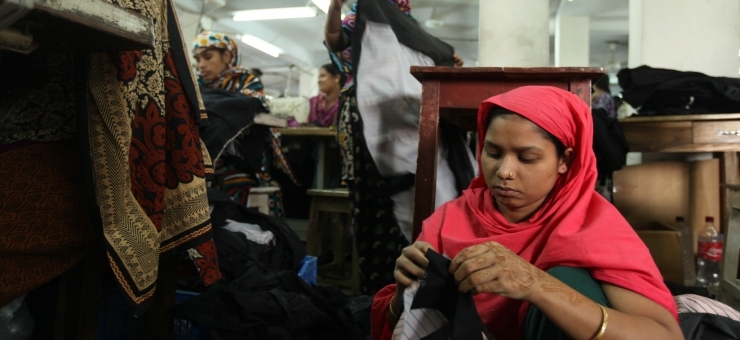Process agreed to prepare for future handover of Bangladesh Accord to a national regulator

Conditions on enforcement and capacity have been agreed to prepare for the handover of the Bangladesh Accord to a national regulatory body. This was announced following a high-level in meeting in Bangladesh, between IndustriALL, Uni Global Union, brand representatives and the BGMEA with the Bangladesh Ministers of Commerce and Labour.
The Accord on Fire and Building Safety in Bangladesh, was set up in the aftermath of the Rana Plaza collapse in 2013, and is valid until May 2018.
IndustriALL and Uni Global Union met with the country’s factory owners’ association BGMEA, in Dhaka on Thursday and agreed on a set of conditions for the handover from the Accord to a national regulatory committee. The conditions include provisions on transparency, enforcement, capacity, as well as confidential complaints mechanisms.
In a further meeting with Bangladesh’ Commerce and Labour Ministers, and the BGMEA, it was agreed that the Accord will be granted an extension to operate beyond May 2018, if at that point the national regulatory body is not yet ready to take over the Accord’s work, as is widely anticipated.
The extension after May 2018 will initially be for six months. A joint committee comprising brands, global unions, BGMEA, ILO and the government will continue to monitor the readiness of the government program to take over from the Accord and further reviews will continue on a six-monthly basis. Once the conditions for handover are met, there will be a further handover period to the national regulatory body of six months.
IndustriALL Assistant General Secretary Jenny Holdcroft says:
The Accord has remedied thousands of safety issues for workers in Bangladesh’ garment industry and is instrumental in protecting workers. It has also created a model that can be adopted by a national regulatory body to ensure compliance with safety standards into the future.
Building capacity to meet the conditions for a handover of Accord functions is vital. We will continue to work with the Accord to support the Bangladesh government in this task and ensure that the requirements are met for a safe and sustainable garment industry.
Christy Hoffman, Deputy General Secretary of Uni Global Union says:
A goal of the Accord has always been to transition to a credible regulatory regime by the Bangladeshi government.
The talks with the government show that it recognizes the importance of a safe ready-made garment industry, and we will continue to work with regulators to help enhance their capacity. We have an agreement that the 2018 Accord will operate until the Bangladeshi government is prepared to take over the responsibilities, as measured by agreed criteria. We will review progress every six months.
In the meeting, it was also agreed that the 2018 Accord will be referred to as the Transition Accord.

